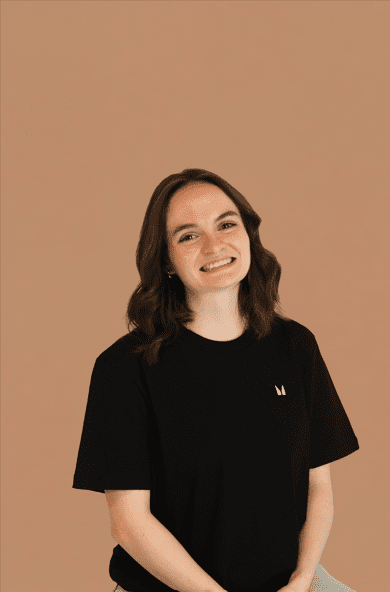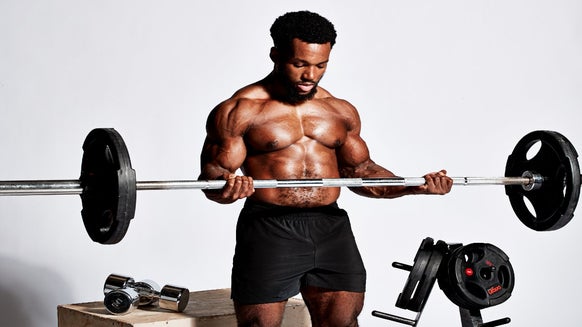
Ramadan is the most sacred month of the year for Muslims. Lasting for 30 days, it’s a time of spiritual reflection, prayer and fasting. But for Muslims who love to work out and stay active, it can be an extra-challenging month.
I spoke to two of our Muslim ambassadors — Aaliyah Unia and Riaz Uddin — to find out what they do to prepare for Ramadan, how they adapt their training routines, and why it's important not to be too hard on yourself during the holy month.
What is Ramadan?
Ramadan is the Islamic holy month, when Muslims worldwide reflect on their faith, practise self-discipline, and fast during daylight hours.
Because Ramadan is based on the lunar cycle, it takes place at a different time each year. This year it will likely take place from 22nd March to 21st April and the daily fast should last just over 12 hours, from roughly 5.15am to 5.45pm.
‘Life detox’
Aaliyah, who works full-time as a consultant when she isn’t lifting weights, describes Ramadan as a sort of “life detox”, a good opportunity to switch off from everyday trivialities and focus on what really matters.
“Ramadan is a month long, where you fast from sunrise to sunset, and abstain from other habits, like scrolling on your phone or watching TV.“It’s a month of learning, with a lot of self-discipline, but it’s also a very community-oriented time, with Muslims across the world fasting during the same hours.“It feels like a bit of a reset button for my year. It really teaches you a lot of discipline, and it’s so much easier to let go of bad habits during that month.”
'Build small changes’
For Riaz, Ramadan is a time for focusing on faith. Working as a full-time audiologist, part-time photographer, and online PT, he’s typically very busy, so adequate preparation is key to a successful holy month.
“It’s the same with anything. If you want to start getting up at 5am to go to the gym, you can’t do that straight away. You need to try waking up at 8am, then 7am, then 6am, until you reach 5am, and it becomes more doable. You need to build those small changes."For example, with Ramadan one of the targets is to read the Holy Qur’an. There are about 30 chapters in the Qur’an, so I’ll split it into a chapter a day or about 30 pages a day.“Try to do a few fasts before just to get into a rhythm of it and that state of mind, because if you just drop your calories straight away, it's going to be really hard.”
‘I try to prep... but that never ends up happening’
Aaliyah knows all too well preparing for Ramadan is a difficult task. A big coffee drinker, she always gives up caffeine but gets bad withdrawal headaches. Thankfully, she’s figured out a way to make things more bearable.
“I try to prep by cutting out caffeine gradually before Ramadan... but that never ends up happening, so I just go cold turkey. That’s why it’s important to have a really proactive approach to your hydration.“Also prioritising foods with high-water content is super important, so things like watermelon and cucumber. Oh, and electrolytes. They were my biggest hack from last year. Because I was getting used to not having caffeine too, I would get headaches a lot and having electrolytes really helped with that.”
‘You’re not gonna hit PBs in Ramadan’
Your training will inevitably change in some way during Ramadan. You probably won't consume as many calories, and you may need to adjust your training times. Both Riaz and Aaliyah suggest doing your workout a couple of hours before or after breaking fast.
And don't expect to be hitting any personal bests either. Riaz says the best thing to do is to accept that you won’t be smashing your workouts or making loads of progress.
“If you're looking to get stronger and hit PBs, you’re not gonna do that in Ramadan. The first step is accepting that. Most definitely, you will lose some muscle.”Riaz says once you've accepted that gains are not the priority, you can focus on the spirituality of Ramadan and see the gym as a bonus.
“You always have to consider that the time in the gym could be spent doing some form of worship so it makes you really do a lot more in your day so you can reward yourself with the gym.”
‘You realise how much your body is capable of’
For Aaliyah, training through Ramadan has made her appreciate just how strong her body is and realise how quickly it is able to adapt.
“Training during Ramadan is definitely a learning curve. I used to have the perspective that I couldn’t train because I was fasting, but you realise how much your body is capable of.“The switch in routine takes a couple of weeks, but by week two or three my energy levels are a lot better.”During Ramadan, Aaliyah chooses to train before breaking her fast, but different timings work for different people.
“I train slightly later, so 1-2 hours before I break my fast. I still train fasted but knowing that I can eat in like an hour or two, so there isn't a long period of time when I crash after training.“But I think it’s good for people to experiment because you might find it easier to train after you’ve broken your fast instead of just before.”But as much as changing your workout can help, Aaliyah also points out that changing routine entirely would miss the point of Ramadan.
“When I was younger, my mum used to say the point of fasting isn’t to change your whole day. You’re meant to carry on with your routine as normal while fasting. It's not an excuse to not do things.”Both Aaliyah and Riaz also suggest cutting down on intense cardio like HIIT or circuit training. Instead, try walking or your regular weight training at a time that suits you best.
‘It gives you a real appreciation of food’
With a much smaller window to consume all your calories in, fuelling properly throughout Ramadan is crucial. Both Aaliyah and Riaz pay plenty of attention to what they’re putting in their bodies.
Riaz isn’t usually one to watch what he eats, but there are some foods he avoids during the holy month.
“90% of the time I eat whatever I want. I don't watch what I eat. I spent a long time being strict with myself when I was getting into shape, but I feel happy with my physique now, so let myself eat whatever I want.“But during Ramadan, I do start to pay attention to what I’m eating. I refrain from high-sugar and highly processed foods and focus on volume with whole foods like oats that release energy slower.”Similarly, Aliyah believes Ramadan has prompted her to rethink her diet for the better.
“Nutrition was one thing that took me years to learn because culturally in Ramadan people eat quite heavy fried foods and basically everything you're craving while you're fasting. But the older I got, the more I realised that it’s an opportunity to be more mindful about the things that I eat.“It helps you get back to basics, see food as fuel, and gives you a real appreciation of it. It’s a really nice time for reflection and mindfulness. Those heavier foods also make you feel a lot more tired, which you don’t want during Ramadan.”
‘Islam doesn’t teach us to neglect the things we enjoy’
So, what are the two ambassadors’ tips for Ramadan?
Riaz says prepare properly, stay active, and use the time to reflect.
“Get a head start, prepare early, even if it's only three days before Ramadan, it’s not too late to prepare. So prepare early, both spiritually and physically.“Tip two would be don’t neglect your fitness. Islam doesn't teach us to neglect the things we enjoy, it promotes balance and purpose. If you already have an element of purpose in your life, do that more. So if you go to the gym, stay active throughout Ramadan.“I’d also say use the month to become more spiritual, get closer to your family, closer to God and closer to your faith. Also see it as another chance to achieve your New Year’s resolutions too.”For Aaliyah, it's more about keeping it simple. Adapt your routine where you can, but make sure to enjoy it.
“Don’t overcomplicate it. You only get Ramadan once a year, and it’s only 30 days, so try to get the most that you can out of it.“Try not to do everything at once. It’s taken me a while, but I’ve finally figured out how to split Ramadan into chunks. So I’ll ease myself into the first week and take training slower, then use the next few weeks to settle into that new routine.“Don’t worry too much about macros and things in those first couple of weeks. Just do what you can, do what feels good for you.“Finally, electrolyte tablets. Buy some electrolyte tablets.”
Take Home Message
Aaliyah and Riaz have some great tips for making the most out of Ramadan. You can still get your workouts in, but you don’t need to put too much pressure on yourself. Do what you can, don’t disrupt your routine too much, use the time for reflection, and that should be more than enough. Ramadan is what you make of it.








